Joint Symposium: Wealth, Poverty & Opportunity in the 21st Century
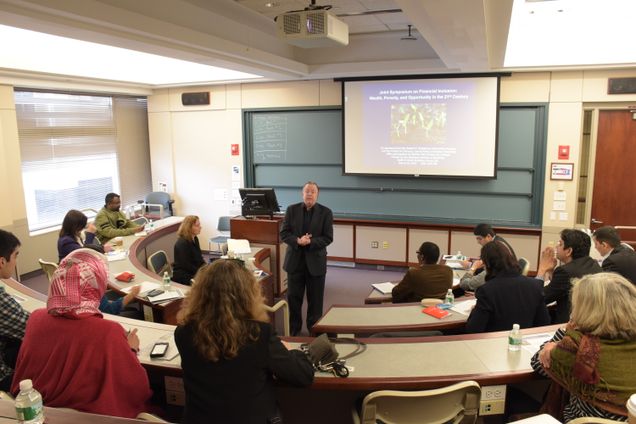
On March 25th, the first-ever Joint Symposium on Financial Inclusion, entitled Wealth, Poverty, and Opportunity in the 21st Century, was hosted by the Questrom School of Business at Boston University. The event was co-organized by the BU Humphrey Fellowship Program and the Center for Finance, Law & Policy, with collaboration from the Business Administration Department at Bunker Hill Community College.
Over two billion people—nearly a third of the entire human race—live outside the formal financial sector. In many developing and emerging economies, the percentage of those who are financially excluded is considerably higher. Expanding financial access is essential to any global strategy for eradicating poverty and promoting justice and economic growth. In this Symposium, Fellows shared stories of financial inclusion from their respective countries. Topics included informal savings and credit mechanisms, facilitating connections between the formal and informal financial sectors, economic and social empowerment through financial inclusion and entrepreneurship, and financial education and literacy. The participants expressed hope that the knowledge shared and created during the Symposium would inspire further initiatives that expand financial inclusion and improve people’s wellbeing and livelihoods throughout the world.
The Director of the Humphrey Program at BU, Professor Jack McCarthy from the Questrom Business School, served as moderator throughout the Symposium, and Dr. Daivi Rodima-Taylor, Senior Academic Researcher at the Center for Finance, Law & Policy, joined him in welcoming everyone to the event.
The Fellows introduced a wide range of topics relating to their experience with financial inclusion initiatives, from the grassroots level—and one Fellow even showcased the entrepreneurial achievements of a single boy—to regional and national policy initiatives. The presentations introduced informal and community-based initiatives such as communal tontine clubs in Senegal (Mouhamadou Kane), women’s village savings associations in Egypt (Nermin Helmy Ali Ahmed), and innovative lending systems in Pakistan (Aly Jafferani).
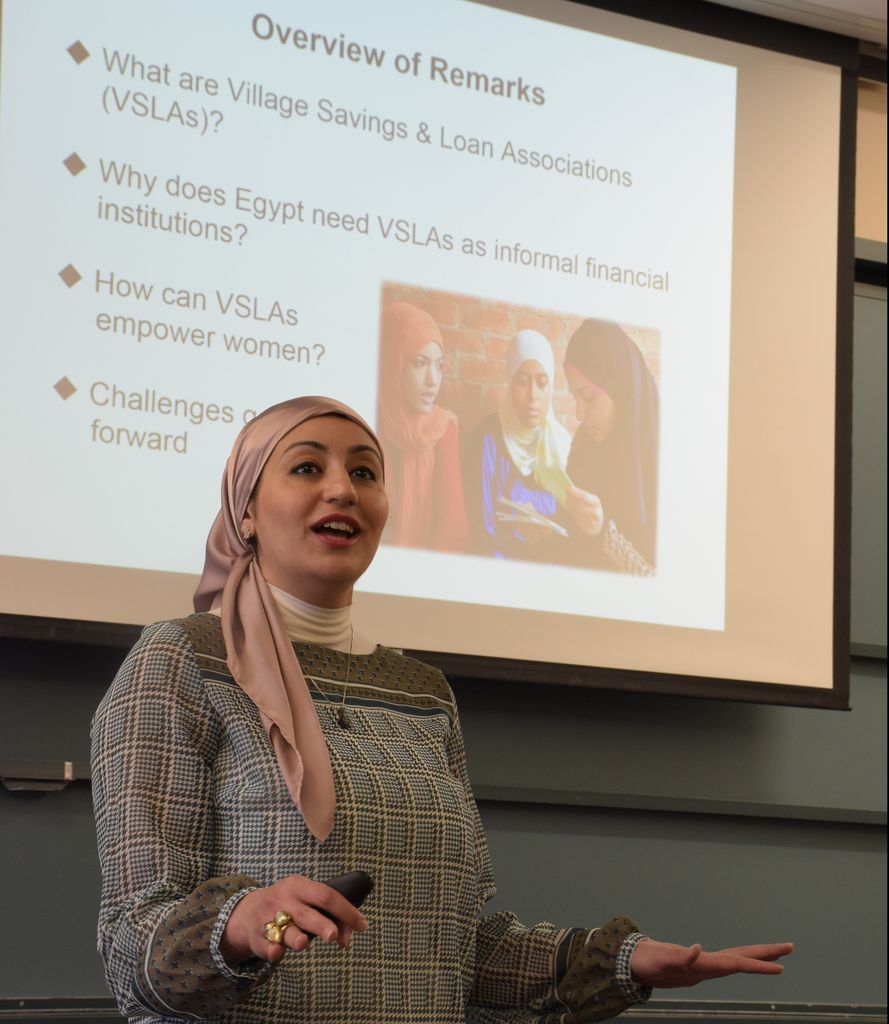
Presentations on improving linkages between formal and informal financial sectors explored the successful case of microfinance policy in Ethiopia (Frezer Alayew Mohammed), innovative participatory and mobile banking initiatives in Morocco (Mounia Diyane), and the relationships between state social transfers and traditional mutual aid in Turkmenistan (Serdar Bazarov). Finally, the importance of literacy and education in expanding financial inclusion was discussed, with the example of improving basic financial services in Myanmar (Khaing Thandar Nyunt), challenges of financial illiteracy throughout Pakistan (Habibullah Pathan), and critical entrepreneurial training in the Albanian educational system (Fozilet Simoni).
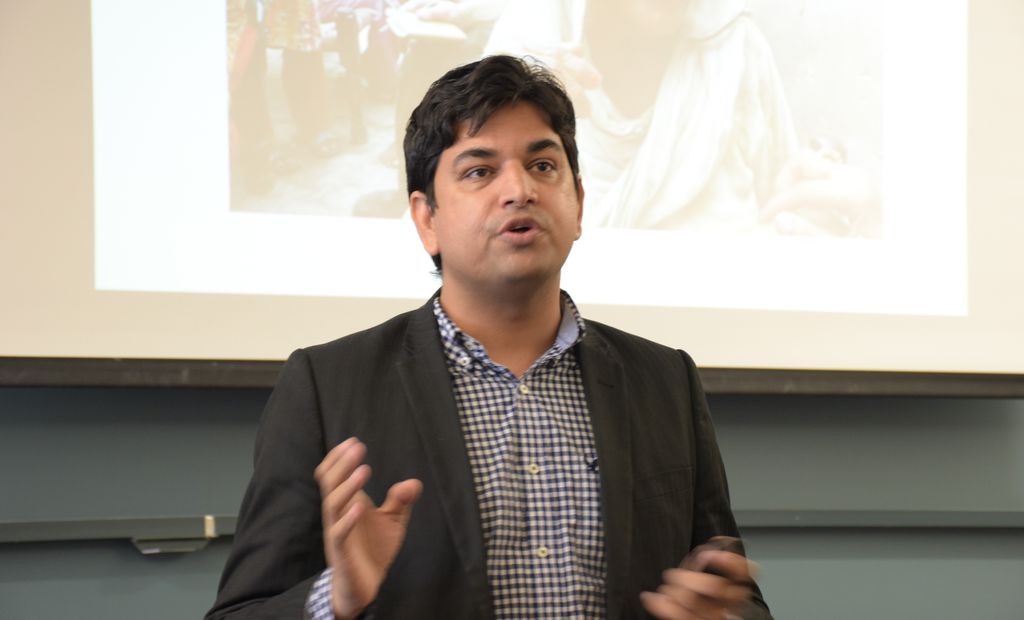
All of the Fellows spoke from the heart about the challenges and opportunities we face in expanding financial inclusion worldwide. As Dr. Rodima-Taylor explained, “the Fellows’ presentations highlighted their knowledge about the financial needs of low income communities in their countries as well as their dedication to expanding financial access and education. The ideas they shared were based on their personal experiences with these topics.” Assistant Professor Wissal Nouchrif from Bunker Hill Community College, who organized a panel session at the Symposium with her students, explained, “what I appreciated most about the symposium was that it provided an array of personal experiences from all over the world shared by the Fellows as well as a rich discussion among all the attendees from BU and BHCC. Truly a unique opportunity to understand financial inclusion challenges across the world!”
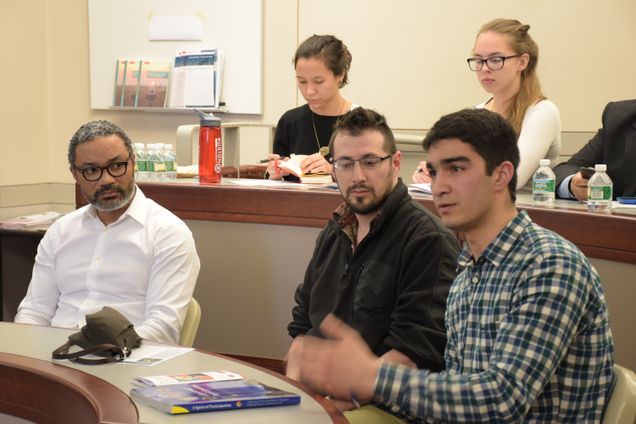
Professor Nouchrif and her current and former students from the Business Administration Department at BHCC also contributed a panel on financial literacy and capability initiatives underway at BHCC. Professor Kathleen O’Neill further introduced BHCC’s Single Stop—an initiative that connects students to state and federal financial resources and local community services.
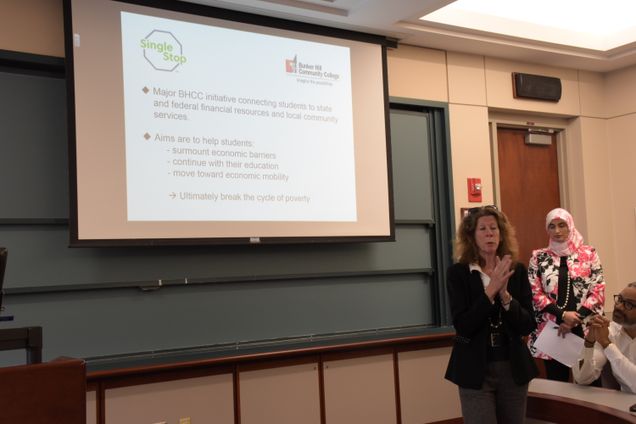
BHCC is a partner of the BU Humphrey Program under the Associate Campus Partnership—an initiative launched by the U.S. Department of State in 2007 with the aim of extending the international perspectives the Humphrey Program to a broader range of U.S. higher educational institutions and local communities. This Symposium built upon earlier collaborations focused on financial literacy, which were implemented by former BU Humphrey Program Director Dr. Ksenya Khinchuk, current Assistant Director Cyrus Kostantinakos, and Professor Nouchrif. This year, the dynamic Symposium format enabled Fellows and BHCC faculty and students to share information and perspectives on the theme of financial inclusion with one another, as well as with attendees from across BU’s Charles River Campus.
Each session was followed by a short Q&A period, and the Symposium ended with an open discussion with attending BU faculty, staff, students, and guests—and conversations continued long after the event had ended. Associate Director for the BU Pardee Center for the Study of the Longer-Range Future Cynthia Barakatt remarked, “the symposium provided a fascinating and enlightening glimpse of how important the informal economy is—not just to individuals, but to communities in various parts of the world. The presentations were short but very informative.”
Over the next several weeks, this collaboration between the Humphrey Program, the Center for Finance, Law & Policy, and Bunker Hill Community College will continue as we move toward publishing a compendium of articles on the topics covered in the Symposium. Watch this space!